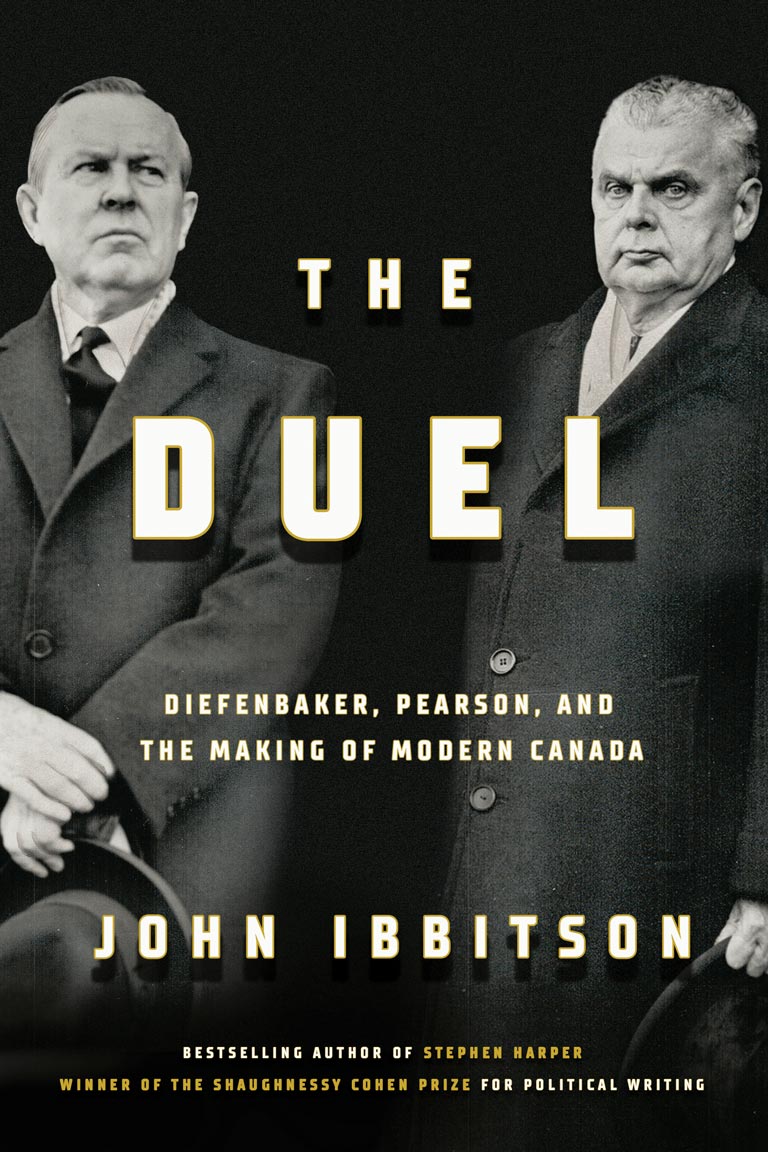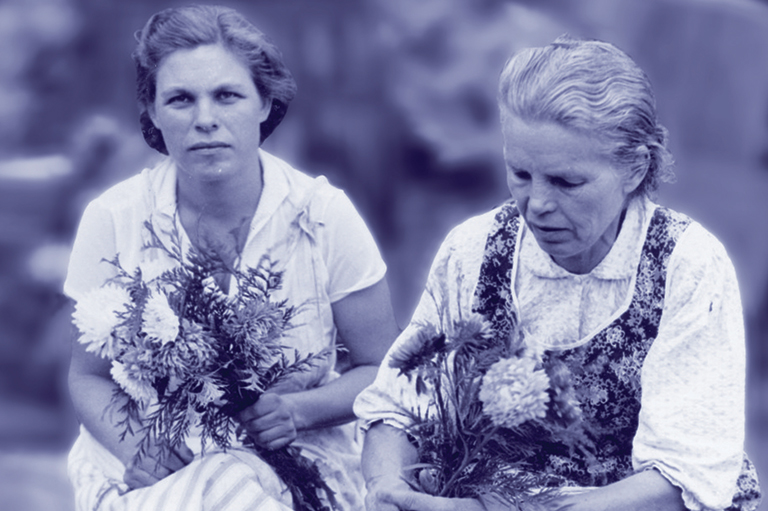The Duel

The Duel: Diefenbaker, Pearson, and the Making of Modern Canada
by John Ibbitson
Signal
464 pages, $45
Both in the House of Commons and on the hustings, John Diefenbaker was a whirling dervish who attacked and parried his opponents while enjoying the rush of political battle. He was at his best when there was blood in the water. Diefenbaker was also a man of the people, as he liked to describe himself: a populist who fought, in his words, for the “little guy.”
The outsider from the Prairies broke some twenty-two years of Liberal power to win a minority government in 1957. But then the scrapper had to learn how to govern. Canadians felt he was the right man to lead the country, and the next year he led the Progressive Conservatives to a massive federal win, this time defeating a Liberal Party led by Lester Pearson. Much of the world was surprised. Pearson was respected for his many years of diplomatic victories, including his providing the solution of peacekeeping regarding the 1956 Suez Crisis, which garnered a Nobel Peace Prize. And yet perhaps Canadians thought less of him, that he was not prime ministerial material.
The history of their long political duel is recounted by veteran journalist John Ibbitson, who chronicles present day political battles in his position at the Globe and Mail. While experts on the two prime ministers will find little new research in this book, it is written with verve and skill. Ibbitson seeks to rehabilitate Diefenbaker, who has been much demonized by journalists and historians. The prime minister’s quivering outrage and boundless energy allowed him to reform immigration rules and to appoint Ellen Fairclough as the first woman in cabinet.
Fighting against apartheid in South Africa, providing long-overdue enfranchisement for Canada’s Indigenous people, and passing the Bill of Rights were tremendous victories for Diefenbaker’s government. In this regard, he was on the right side of history.
With 7 uniquely curated newsletters to choose from, we have something for everyone.
But the prime minister’s growing paranoia, anger at his own ministers, poor relationship with the press, and ineffectiveness in acting on key issues, especially during the Cuban Missile Crisis, alienated the United States as well as a growing proportion of the electorate. Governments tend to defeat themselves, and Diefenbaker was doing some heavy lifting in this regard by the time of the 1962 election, when his party won only a minority government.
The next year Diefenbaker was hurled to the opposition benches, where, instead of lamenting his fate, he became reinvigorated and attacked the Liberals. He was a one-man wrecking ball.
For Pearson, Canada’s fourteenth prime minister, the Nobel Prize was put away, and he governed as a Cold War warrior. He was also a pragmatist at heart who understood that compromises were required to pass legislation. From 1963 to 1968, Pearson’s government made advances in promoting bilingualism, in rebuilding relations with the United States, by adopting the Canadian flag, and with the creation of a universal medical-care system, a strengthened social-security net, and a Canadian pension plan. These were monumental changes to the country’s social fabric.
In many ways, argues Ibbitson, Pearson continued Diefenbaker’s work in modernizing Canada. This argument only goes so far, and Diefenbaker’s disgust with the Americans, support of Britain, and desire to better engage with Canada’s North were all very different approaches than those taken by Pearson’s Liberals.
More valuable to readers is the sympathetic portrayal of Diefenbaker, who fought for Canadians and for equality, and who has often been framed as erratic, vindictive, and, as one journalist wrote, a “dithering windbag.” He was more than this — but, even with Ibbitson’s positive portrayal, there is no denying that Diefenbaker’s time as prime minister was frequently burdened by anger and grievance. Pearson was lighter, made better use of his ministers, and was more effective while in power. It nonetheless took both leaders, and their ongoing duel, to make the modern Canada.
In today’s environment of misinformation and disinformation, it can be hard to know who to believe. At Canada’s History, we tell the true stories of Canada’s diverse past, sharing voices that may have been excluded previously. We hope you will help us continue to share fascinating stories about Canada’s past, highlighting our nation’s diverse past by telling stories that illuminate the people, places, and events that unite us as Canadians, and by making those stories accessible to everyone through our free online content.
Canada’s History is a registered charity that depends on contributions from readers like you to share inspiring and informative stories with students and citizens of all ages – award-winning stories written by Canada’s top historians, authors, journalists, and history enthusiasts. Any amount helps, or better yet, start a monthly donation today. Your support makes all the difference. Thank you!
Themes associated with this article
Advertisement
Save as much as 40% off the cover price! 4 issues per year as low as $29.95. Available in print and digital. Tariff-exempt!




